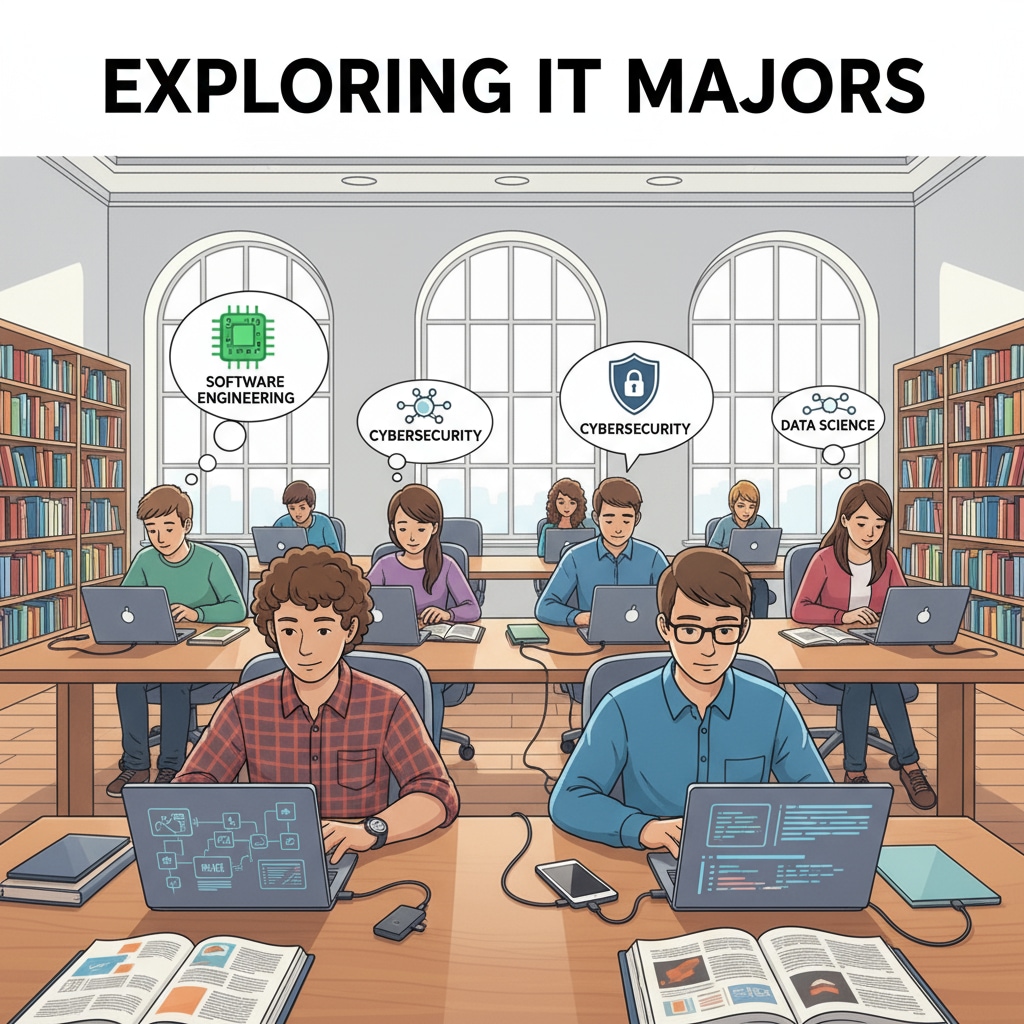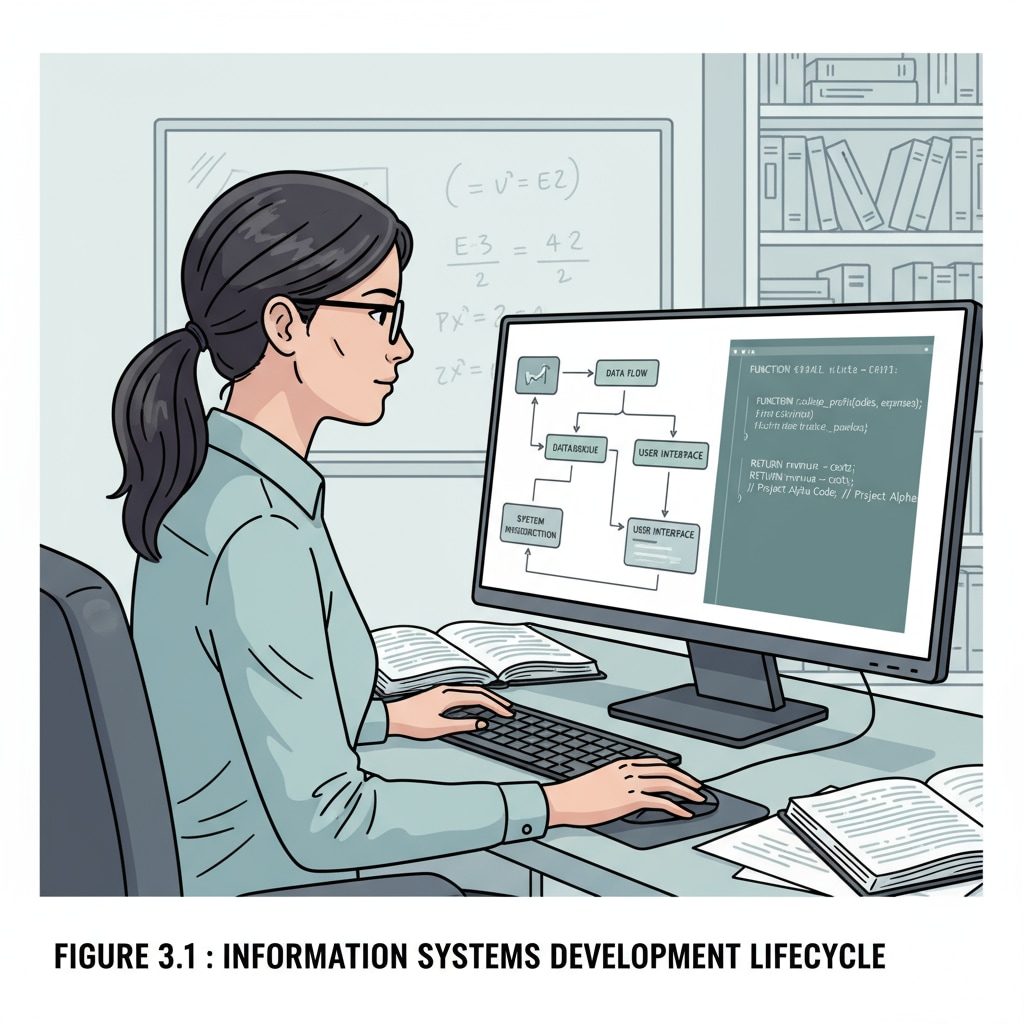Professional selection in information technology for future development is a significant decision that today’s K12 students must grapple with, especially when presented with offers in Information Systems Engineering, Information and Communication Technology Engineering, and AI Robotics Engineering. This article aims to assist students in navigating this crucial choice by examining three key aspects: job prospects, personal interest alignment, and the trends of academic development.

Job Prospects: The Economic Viability of Each Major
Information Systems Engineering equips students with the skills to design, develop, and manage information systems. In today’s digital age, companies across all industries rely on these systems for operations. According to the Bureau of Labor Statistics, jobs in information systems, such as information security analysts, are projected to grow significantly. These professionals ensure the security and efficiency of company data, making them highly sought after.
Information and Communication Technology Engineering focuses on the technology behind communication networks. With the increasing demand for high – speed internet, 5G technology, and seamless communication across devices, the job market for ICT engineers is booming. Telecom companies, tech giants, and even government agencies are in need of experts who can design, maintain, and innovate communication infrastructure. For example, positions like network engineers are expected to see steady growth, as they are responsible for building and managing reliable networks.
AI Robotics Engineering is at the forefront of the technological revolution. As robots become more integrated into industries like manufacturing, logistics, and healthcare, the demand for AI robotic engineers is soaring. These engineers develop intelligent robots that can perform complex tasks autonomously. A report from Gartner indicates that the field of AI robotics will create numerous job opportunities in the coming years, including roles in robot design, programming, and maintenance.

Personal Interest Matching: Finding Passion in the IT Field
Personal interest plays a vital role in long – term career satisfaction. If a student has a passion for problem – solving within an organizational context and enjoys working with databases and software systems, Information Systems Engineering might be the ideal choice. These students will find fulfillment in analyzing business requirements and creating information systems that streamline operations.
For those fascinated by the mechanics of communication technology, such as how data travels across networks and the development of wireless technologies, Information and Communication Technology Engineering is a great fit. The dynamic nature of the ICT field, with its constant innovation in areas like 6G research, offers endless opportunities for individuals passionate about these technologies.
Students who are intrigued by the concept of intelligent machines and the potential of AI to transform the way robots interact with the world should consider AI Robotics Engineering. The ability to bring robots to life, endow them with intelligence, and see them perform useful tasks can be incredibly rewarding for those with a creative and technical bent.
学科发展趋势: Riding the Wave of Technological Advancements
The field of Information Systems Engineering is evolving towards greater integration with emerging technologies like blockchain and cloud computing. These technologies are enhancing the security and scalability of information systems. For instance, blockchain can be used to create tamper – proof records in information systems, while cloud computing offers on – demand resources for data storage and processing.
Information and Communication Technology Engineering is moving towards the development of more advanced communication protocols and the integration of communication technologies with other fields like the Internet of Things (IoT). The future will see even faster and more reliable communication networks, enabling seamless connectivity for smart devices.
AI Robotics Engineering is witnessing rapid progress in areas such as human – robot interaction and the development of more intelligent and versatile robots. Collaborative robots, or cobots, are becoming increasingly popular in industries, working alongside humans to enhance productivity.
In conclusion, the decision among Information Systems Engineering, Information and Communication Technology Engineering, and AI Robotics Engineering requires a careful consideration of job prospects, personal interests, and academic development trends. By evaluating these aspects, students can make an informed choice that will set them on the path to a successful career in the dynamic field of information technology.
Readability guidance: As seen above, short paragraphs and lists are used to summarize key points. Each H2 section provides a list of relevant information. The proportion of passive voice and long sentences is controlled, and transition words like “for example”, “such as”, and “while” are evenly distributed throughout the article to enhance readability.


